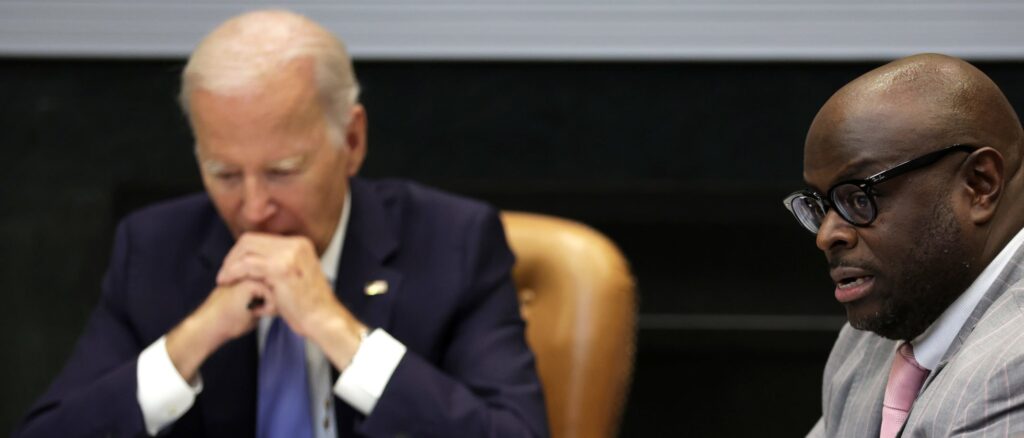A new estimate for U.S. economic growth released Thursday could mean that higher interest rates, and resulting economic pain, will be with Americans for longer.
Gross Domestic Product (GDP), a measure of economic growth, for the U.S. remained at 2.1% for the second quarter of 2023 in its third revision, after being revised down from an original estimate of 2.4%, while GDP for the first quarter was revised up from 2.0% to 2.2%, according to the Bureau of Economic Analysis (BEA). Jerome Powell, chair of the Federal Reserve, noted at the Jackson Hole Economic Symposium in August that factors like high inflation, a hot labor market and sustained economic growth could mean higher rates for longer. (RELATED: Voters Overwhelmingly Side With The GOP On The Economy: POLL)
The Fed decided to keep rates at a range of 5.25% and 5.50% at its September Federal Open Market Committee (FOMC) meeting, holding them steady before another possible hike later this year. The last rate hike in July was the 11th increase to the federal funds rate since March 2022, leaving the range at the highest level since 2001.
Big downward revision for consumption within 2Q23 GDP … final adjustment took growth rate from +1.7% (q/q ann.) to +0.8% (weakest since pandemic decline) pic.twitter.com/KSIjozdsPK
— Liz Ann Sonders (@LizAnnSonders) September 28, 2023
Following the FOMC meeting, Powell noted that an economic “soft landing,” a slowdown of market growth while avoiding triggering a recession, was not a “baseline expectation,” meaning the interest rates that were meant to slow down the economy to fight inflation could trigger a recession. Inflation continues to remain high, further incentivizing the Fed to keep rates elevated, rising to 3.7% for August, far above the Fed’s 2% target.
Although the topline GDP number remained the same for the second quarter, consumer spending was revised down but then was offset by upward revisions in nonresidential fixed investment, exports and inventory investment, according to the BEA.
Biden has continually boasted about the success of his signature economic policy, “Bidenomics,” citing statistics like low unemployment numbers as proof of its efficacy. The focal point of Bidenomics is high-spending programs like the Inflation Reduction Act, which some experts argue have contributed to inflation, ultimately leading to rate increases.
All content created by the Daily Caller News Foundation, an independent and nonpartisan newswire service, is available without charge to any legitimate news publisher that can provide a large audience. All republished articles must include our logo, our reporter’s byline and their DCNF affiliation. For any questions about our guidelines or partnering with us, please contact licensing@dailycallernewsfoundation.org.


